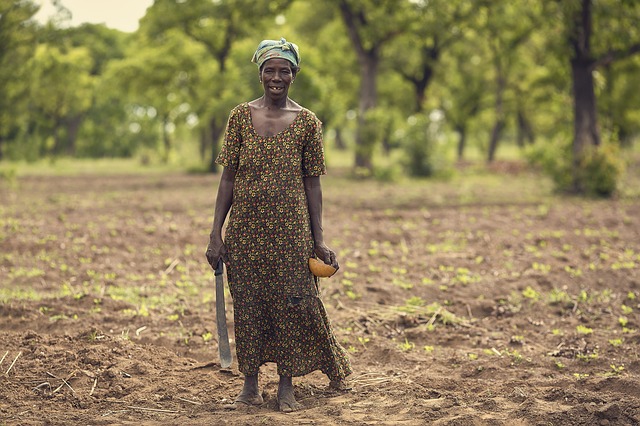February 16, 2021
By Lynda Kiernan, Global AgInvesting Media
Phatisa has closed its Food Fund 2 at $143 million with capital commitments from a collective of five DFIs (Development Finance Institution) and impact investors, totaling $82 million.
The consortium consists of:
– CDC Group – $30 million
– Norfund – $20 million
– Finnfund – $15 million
– FinDev Canada – $10 million
– And, BIO – $7 million
With the exception of FinDev Canada, all have backed Phatisa’s previous funds.
Phatisa, a sector-focused African private equity firm with the mission of feeding and housing the continent, announced in March of 2017 that it was targeting US$300 million for Phatisa Food Fund 2 (PFF) – a successor to the firm’s debut African Agriculture Fund (AAF), which closed in 2013 at US$246 million.
Considering the difficult fundraising environment that the past 12 months has presented, combined with the near desperate need for financing amid the economic slowdown driven by the pandemic, the fund has decided to close out fundraising for PFF 2 short of its original goal. However, there is mention of a potential third fund to be launched in the future.
“Food insecurity is a major issue on the continent, compounded by the COVID-19 pandemic which threatens to push another 23 million African citizens into extreme poverty,” said Paulo Martelli, chief investment officer, FinDev Canada. “Phatisa has shown what it can do to benefit small-holder farmers and the firms working with them while promoting rural livelihoods. We expect our investment in Phatisa Food Fund 2 to create sustainable benefits for many more people in Africa, as well as the companies where they work, shop, and do business with.”
PFF’s predecessor, the African Agriculture Fund (AAF), was launched in 2009 as a coordinated effort by a consortium of European and African financial institutions to develop a fund that would have a positive impact on agriculture and food production in Africa through a pan-African approach. Its mission proved successful, having created more than 1,800 jobs and benefiting farmers in 20 markets across the continent.
Building on this success, PFF 2 will seek majority and significant minority stakes in companies in which it will have representation on the board or other shareholder rights. It will target managed buyouts, partial exits, and capital commitments needed for business expansion ranging between $15 million – $25 million across the African food value chain, including food production, processing, ag inputs, mechanization, food aggregation, logistics, infrastructure, distribution and speciality retail businesses, branded foods, beverages, and food service.
Once fully running, PFF 2 is aiming to deliver its LPs a gross IRR in the high twenties.
“We are pleased to welcome this multinational group of investors to Phatisa Food Fund 2, a fund focused on increasing investment in the undercapitalized African agribusiness and food value chain,” said Stuart Bradley, managing partner, Phatisa. “Development impact, without deviating from sound commercial principles, is at the heart of Phatisa’s investment approach. Over the Fund’s investment cycle and through its investments in talented and driven management teams, we aim to create shared value; inclusive and sustainable growth; and address social and environmental challenges impacting some of the most marginalized people in Africa.”
A combination of macro factors are aligning in the sub-Saharan region indicating positive opportunities for investment along the agriculture and food value chains in the region, and across the wider continent.
Agribusiness is the driving force behind 65 percent of employment on the continent, and 75 percent of its domestic trade. Overall, Africa is seeing a growth rate of 5 percent per year, which PwC said could result in Africa’s GDP tripling by as soon as 2030. And if the rate remains sustained, Africa’s GDP could outpace that of Asia by 2050.
Indeed, Africa’s agribusiness sector has the potential to reach a value of US$1 trillion by 2030, according to the African Development Bank. However, despite the fact that 60 percent of the population in sub-Saharan Africa is smallholders, and agriculture accounts for 23 percent of sub-Saharan Africa’s GDP, McKinsey pointed out that this potential is widely untapped, saying that there is the potential for the continent to produce as much as three times the grains and cereals it’s currently producing.
Furthermore, the International Monetary Fund (IMF) noted that sub-Saharan Africa is on pace to be home to the world’s top labor force, as its population booms from 800 million in 2010 to 3.7 billion by 2100. Over that time period, sub-Saharan Africa is expected to contribute 100 percent of the expected increase of two billion global workers.
Given these factors, Phatisa’s investment mandate to feed and house the African continent strongly aligns with the needs and trends being forecasted for the region.
“We are glad to participate in this fund with our fellow investors. Strengthening and increasing food supply, local production and distribution – enhancing food security and supporting small-holder farmers – is at the core of Finnfund’s mission,” said Rikka Molander, associate director & head of funds, Finnfund. “Particularly now, in the midst of the COVID-19 pandemic, it is extremely important to generate financing for agriculture and food production in the African continent.”
– Lynda Kiernan is editor with GAI Media, and is managing editor and daily contributor for Global AgInvesting’s AgInvesting Weekly News and Agtech Intel News, and HighQuest Group’s Oilseed & Grain News. She is also a contributor to the GAI Gazette. She can be reached at lkiernan@globalaginvesting.com

Let GAI News inform your engagement in the agriculture sector.
GAI News provides crucial and timely news and insight to help you stay ahead of critical agricultural trends through free delivery of two weekly newsletters, Ag Investing Weekly and AgTech Intel.




